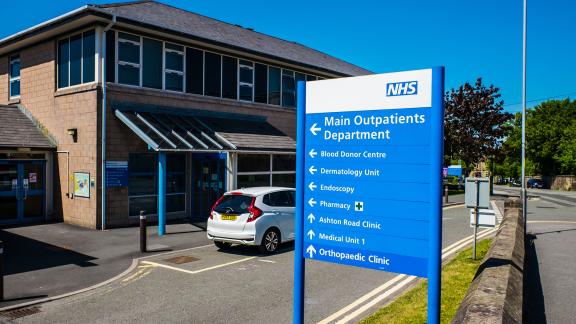2030 vision

From personalised medicine to AI-enabled consultations, the next ten years will see huge advances, writes EMIS Group’s health tech chief medical officer, Dr Shaun O’Hanlon.
Technology’s pivotal role in health and social care can be in no doubt. It’s a central plank of the NHS Long Term Plan; NHSX wants to drive the largest digital health and social care transformation programme, with more than £1 billion invested annually.
What might a tech-enabled NHS and social care service look like in 2030? Here are my predictions.
Personalised care
Personalised care is already here but by 2030 it will be mainstream.
We’ll see widespread adoption of genomics, proteomics, lifestyle data collection and psychological data collection. Intelligent algorithms will be used to enable truly personalised healthcare and medicines, delivered by clinicians and patients themselves, significantly improving outcomes for conditions such as cancer, CVD and diabetes, as well as underpinning improved psychological and physical wellbeing.
The 100,000 Genomes Project has shown the potential benefits of personalised healthcare. For patients with uncommon and rare conditions such as primary ciliary dyskinesia, genome sequencing has enabled patients to be definitively diagnosed. For cystic fibrosis, patients with various mutation types can be identified, enabling an individual therapeutic approach.
Analysing behavioural data will add a new dimension to how care can be personalised. How we interact with our phones is already providing insight into our personality and our psychological wellbeing. We’re now at a point where this personalised data interaction can drive algorithms, improving compliance by understanding individual motivations and behaviours.
Home health
I am optimistic that by 2030 we will fully integrate health and social care services. Our ageing population and limited budgets make this imperative. By 2030, ONS statistics predict one in five people in the UK will be aged 65 or over and there will be 21,000 centenarians.
Connected technology will play a pivotal role with home-based devices such as movement sensors, accelerometers, bluetooth inhalers and pill packs, pulse oximeters and intelligent toilets. Data collated from these devices will be used to identify and predict changes in the behaviour of patients at home. This will underpin early interventions by family or healthcare services. This will help improve the outcomes and care experience for patients and families, and reduce avoidable hospital admissions.
The GP consultation room of the future
By 2030, more routine care will be provided in different care environments, for example at your pharmacy or via apps and video. However – to those with more complex conditions – the face-to-face consultation will still be vital, but will look very different.
Technology will be the enabler, not the focus, of the consultation. The computer will no longer be the ‘third person’ in the room. Instead, clinicians will be supported by a range of technologies, including voice technology and augmented reality glasses – receiving a seamless flow of relevant information and permitting them to keep their focus on the patient. Decision making will evolve; the sheer volume of data available to clinicians will necessitate algorithms to serve up manageable ‘information nuggets’ to provide insight and focus.
A good example of how this is beginning to look is a NICE-endorsed tool that helps GPs care for the 1.2 million patients in the UK with atrial fibrillation. The programme identifies key information from a patient’s record instantly – such as height, weight, age, serum creatinine, medical history and existing medication, which helps the GP accurately calculate and monitor the correct doses of anticoagulant drugs to treat atrial fibrillation.
Intelligent hospitals
Of course, hospitals will still exist – the most sophisticated technology in the world is no substitute for hands-on acute medical care. But there will be fewer physical, bricks and mortar hospitals and the ones that do exist will be more intelligent.
Ubiquitous, patient-controlled access to medical records will mean those who attend hospitals will be treated and discharged more quickly, as clinicians make speedier and better-informed decisions. Treatment of cancer, neurological conditions and metabolic conditions will be revolutionised by the commoditisation of personalised genomic therapy through techniques such as CRISPR gene editing. Every hospital will have genomic practitioners treating cancers, cystic fibrosis and rare conditions such as Huntington’s disease using gene manipulation.
The cloud and data The cloud will be behind everything. It will empower unprecedented access to data and deliver the intelligence to make use of the vast amounts of information stored.
Population health data science is still in its infancy – we don’t yet fully understand the potential of our personal data. But, in ten years’ time, healthcare delivery and planning will be revolutionised by data science.
The last decade saw key next generation technologies (big data techniques, across the board mobile device use, gene therapy, etc) emerge. The next ten years will see the wholescale adoption and leverage of these technologies in healthcare, improving outcomes, efficiency and hopefully the wellbeing of those working in and using our national health service.
Dr Shaun O’Hanlon is chief medical officer at EMIS Group. Follow him and the organisation on Twitter @drshaun @EMISGroup



